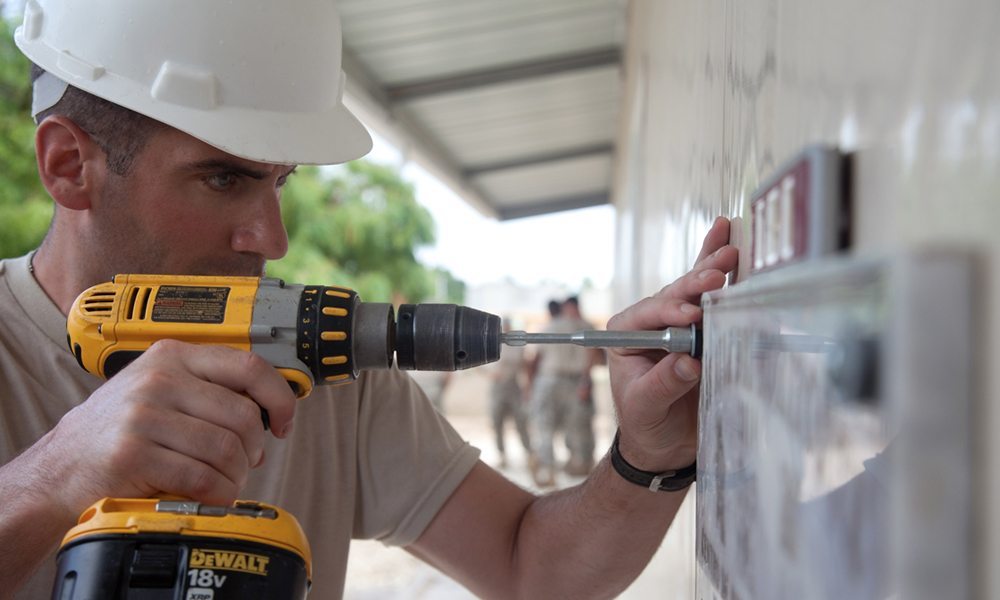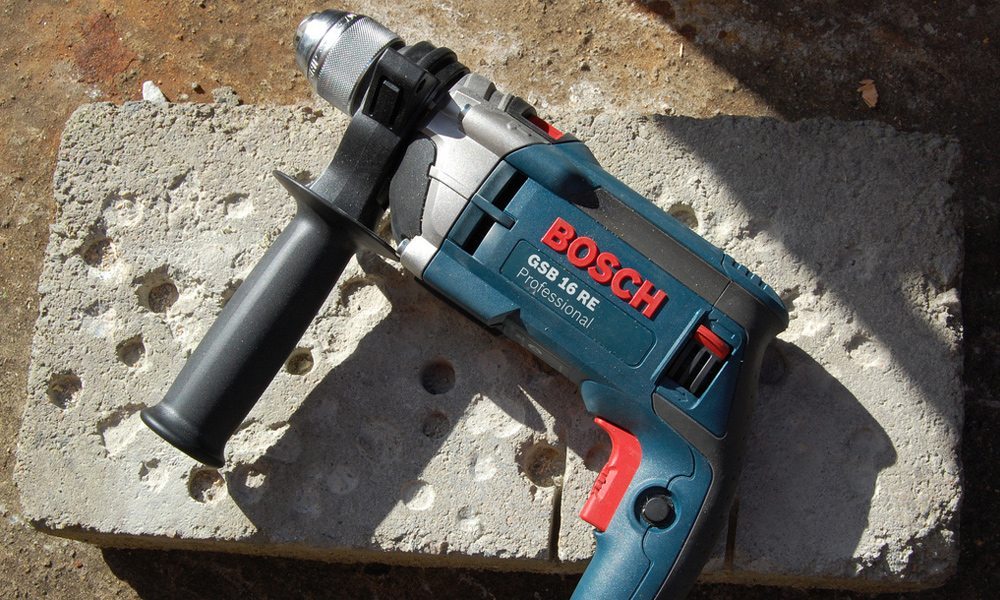Is a Corded Drill Better Than a Cordless?
When it comes to electric drills, there are two main types to keep in mind: cordless (or battery-powered), and corded. Cordless drills rely solely on a battery for their power source; corded drills plug into a power outlet. Contractors and handymen use both types of drills for specific needs. Each type does essentially the same thing, but each one is better under certain circumstances.
When talking about power versus convenience, this is where they start to differ. Cordless drills are for convenience; corded drills are for power. Cordless drills are great when you’re away from a wall outlet. Maybe you’re working on building a home, and there’s no power, or you’re working in a tight, confined area. Both scenarios are better suited for a cordless drill.
However, if you have access to an outlet and have work requiring more torque, more efficiency, and more durability, going corded is definitely the smarter choice. Many contractors use both types of models – and for good reason!
 Power
Power
There seems to be a vast amount of advantages to using a corded drill over a cordless one. The best reason is, of course, power. Corded drills, by far, provide more consistency in torque. Although there are some very high-quality cordless models out there that compare well in this area, corded drills are still a much more reliable means of drilling and driving.
The twisting force in torque is powered optimally by the constant flow of electricity, so there are no interruptions or limitations in voltage. Ask a carpenter or contractor which option they’d choose, and it will almost always be a corded drill.
Convenience
Without a doubt, cordless drills have the advantage of being more convenient. You’re able to take the drill anywhere as long as there’s a charged battery attached. Many cordless models have all the bells and whistles of their corded cousins, like magnetized bits and multiple speeds.
Cordless drills are unrestricted by a dangling cord. As such, they make excellent backup drills for DIYers and contractors alike and are ideal for those quick, easy jobs.
But Overall
If the work is more detailed and requires more power, durability, and long-term handling, corded drills are the obvious choice. The power grid always works, so you never have to worry about running out of juice, unlike with a battery-powered drill. There is more consistent torque, better boring and handling through harder materials like concrete, and more longevity with the life of the drill. Corded drills are the best answer for any sized job. You’ll have more confidence in getting the work done correctly, without extraneous issues.
 The Lighter, Friendlier Choice
The Lighter, Friendlier Choice
Corded drills are also more lightweight because there’s no heavy battery pack. You can use them effectively and comfortably through long-term projects with ease. The more ergonomic handles and triggers offer extra comfort and protection from overall hand fatigue.
Longevity
And finally, when it comes to corded drills, you don’t have to worry about the battery self-destructing or wearing out with extended storage. Even if you only use your drill a few times a year, it should power on.
Conclusion
For those everyday projects around the house or on site, a cordless drill is convenient for lightweight work, but a corded drill will provide the best overall performance in terms of durability, efficiency, and power.